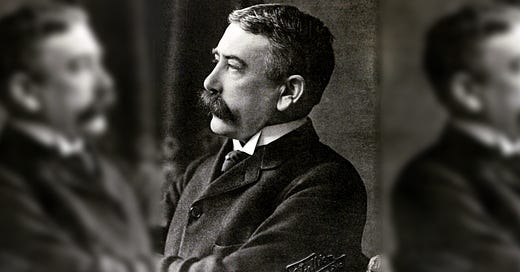Was the father of modern linguistics a survivor of sexual abuse?
An oddly overlooked episode in the life of Ferdinand de Saussure.
I’ve spent the past several months working on a book about language that I may or may not ever actually complete — and it is hard to write about language without encountering the father of modern linguistics, Ferdinand de Saussure. Though there are plenty of historical precedents for his work, it was Saussure who developed a structural account of langua…
Keep reading with a 7-day free trial
Subscribe to Carl Beijer to keep reading this post and get 7 days of free access to the full post archives.





